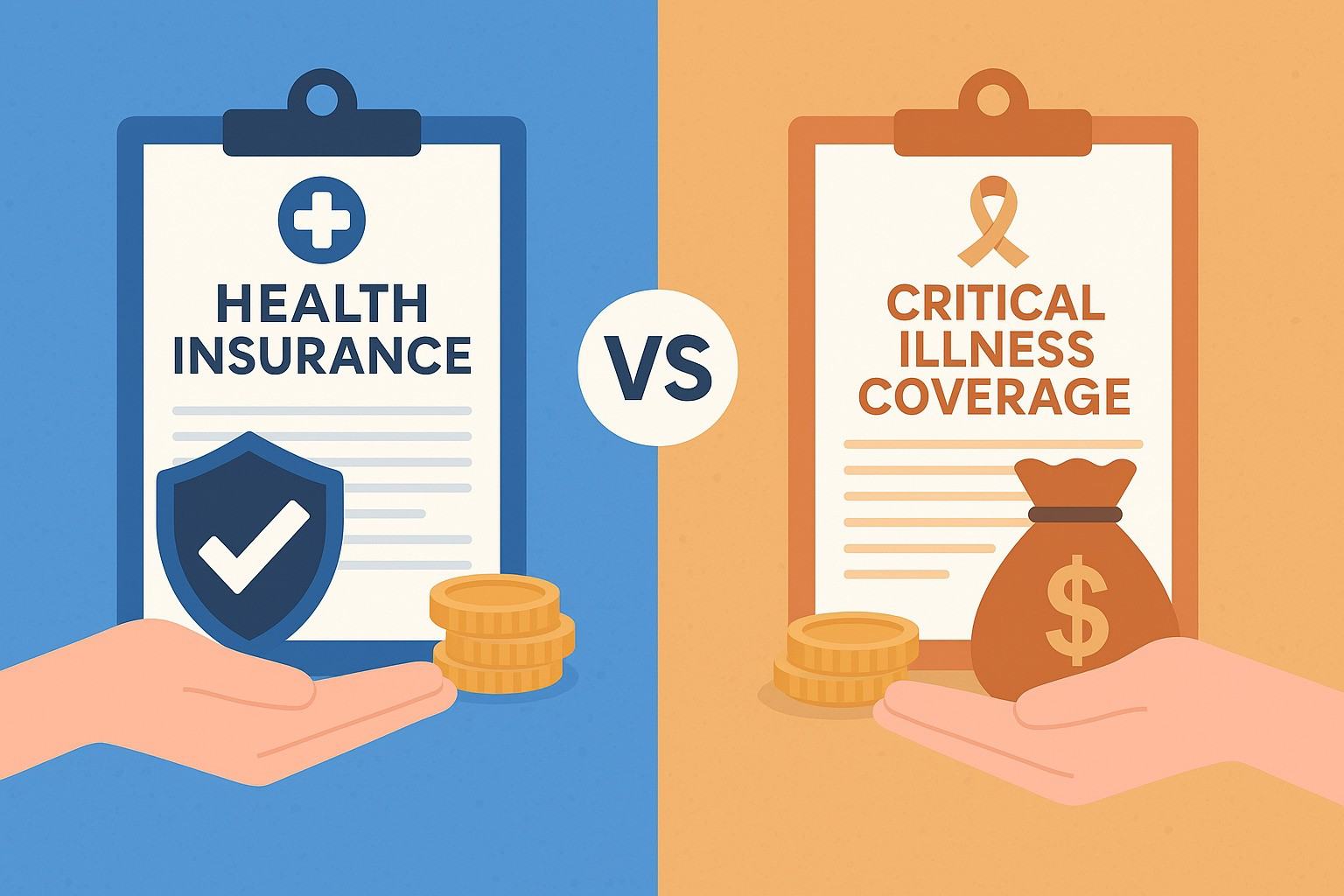Healthcare costs continue to rise every year, and having the right protection has become more important than ever. Many people assume that health insurance alone is enough, while others emphasize the importance of critical illness coverage. Both are valuable financial tools, but they serve different purposes.
If you’ve ever wondered which type of protection you truly need—or if you should consider both—this article will break down the differences, benefits, and considerations to help you make the best decision for your situation.
Understanding Health Insurance
Health insurance is designed to cover medical expenses that arise from illness, injury, or hospitalization. It typically includes doctor visits, prescription drugs, emergency care, surgeries, and sometimes preventive services like screenings or vaccines.
The goal is to protect you from paying massive bills out of pocket when you need medical attention. For example, a three-day hospital stay in the U.S. can cost over $30,000 without insurance. With health insurance, most of that cost is reduced significantly.
What Is Critical Illness Coverage?
Critical illness insurance is a supplemental policy that provides a lump-sum payment if you are diagnosed with a serious condition listed in the policy. Common covered illnesses include:
Cancer
Heart attack
Stroke
Kidney failure
Major organ transplant
Unlike health insurance, which pays hospitals and doctors directly, critical illness coverage gives you cash that you can use however you choose. You might use it for out-of-pocket medical bills, but many people also use it for non-medical expenses such as mortgage payments, childcare, or daily living costs while they recover.
Key Differences Between the Two
Type of Coverage
Health insurance = covers a wide range of medical expenses.
Critical illness insurance = pays only when a specific illness is diagnosed.
Payment Method
Health insurance = reimburses hospitals and providers.
Critical illness coverage = gives you a lump sum directly.
Flexibility
Health insurance = limited to medical costs.
Critical illness = can be used for anything, even replacing lost income.
Advantages of Health Insurance
Broad coverage for many health situations.
Preventive care to detect problems early.
Essential for complying with legal or employer requirements in many countries.
Provides financial protection against unpredictable medical bills.
Advantages of Critical Illness Coverage
Direct cash payment for maximum flexibility.
Helps cover non-medical expenses during recovery.
Peace of mind for high-cost illnesses like cancer or organ failure.
Can work as a financial cushion even if you already have health insurance.
Do You Need Both?
The answer depends on your circumstances. For most people, health insurance is essential because it covers a wide range of situations. However, critical illness coverage can be a valuable add-on, especially if:
Your family has a history of major illnesses.
You rely heavily on your income and cannot afford a long break from work.
You want additional protection beyond hospital bills.
In many cases, having both ensures you are protected from medical expenses and the financial impact of a long recovery period.
Real-Life Scenario
Imagine this: Sarah, age 40, has comprehensive health insurance. One day she is diagnosed with breast cancer. Her insurance covers surgery, chemotherapy, and medications. However, she needs to take 6 months off work. During this time, her health insurance does not cover her rent, groceries, or childcare.
Luckily, Sarah had purchased critical illness coverage two years earlier. She receives a $50,000 lump sum, which allows her to focus on recovery without worrying about bills.
This example highlights how the two types of insurance complement each other.
How to Choose the Right Option
Evaluate Your Current Coverage
Check what your health insurance already provides. Some plans may include limited critical illness benefits.
Assess Your Risk Factors
Consider your lifestyle, job, and family medical history.
Think About Your Finances
Could you cover six months of living expenses if you couldn’t work? If not, critical illness coverage may be worth it.
Compare Costs
Premiums for critical illness coverage are usually affordable compared to comprehensive health insurance.
Final Thoughts
Health insurance and critical illness coverage are not competitors—they are partners in protecting your financial and physical well-being. Health insurance shields you from overwhelming medical bills, while critical illness coverage ensures you have financial flexibility during a life-changing diagnosis.
For many people, the best approach is to have both, ensuring all angles are covered. However, if you must choose, health insurance should always come first. Critical illness coverage can then serve as an additional safety net for peace of mind.

